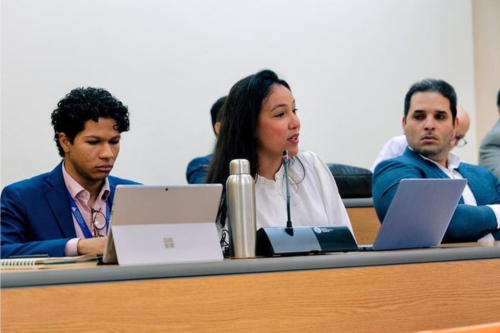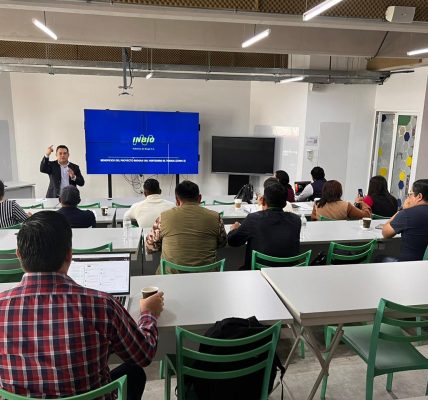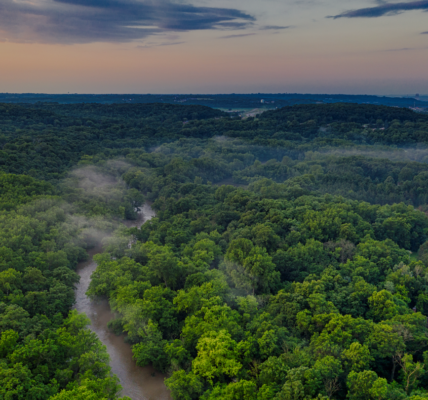ALLCOT Academy participated in the call made by the Ministry of Environment of the Dominican Republic to be accredited as an observer at COP28
ALLCOT Academy, together with numerous NGOs that fight against climate change, attended the high-level panel convened by the Dominican Government to explain the requirements to be accredited as observer to the United Nations Framework Convention on Climate Change and to serve as a preamble to the twenty-eighth Conference of the Parties (COP28), to be held at the end of the year in Dubai, United Arab Emirates.
The panel, organized by the Ministry of Environment and Natural Resources (MMARN) and the Pontificia Universidad Católica Madre y Maestra (PUCMM), through its Alejandro E. Grullón E. Sustainability Chair, offered participants the opportunity to learn about the accreditation process and experiences of Dominican organizations accredited as observers to the convention.
The process of the accreditation as observer
Opening remarks were made by Max Puig, executive vice-president of the National Council for Climate Change and Clean Development Mechanism (CNCCMDL), who highlighted the role of non-governmental organizations in promoting climate ambition at the local level.
Through the presentations of María del Carmen Vargas, director of Social Participation, and Gabriela Márquez, specialist and negotiator in climate transparency, the Ministry of Environment and Natural Resources presented the requirements to apply for accreditation before the United Nations Framework Convention on Climate Change (UNFCCC), highlighting its advantages and facilities.
Advancing on the observer accreditation
As of COP27, which took place last year with the participation of more than 12,000 representatives, there were more than 3,000 non-governmental organizations accredited as observers, according to the speakers.
They also explained the mechanisms through which the ministry provides resources to local NGOs through the National System of Grants for Non-Profit Associations (ASFL).
How it went
During the panel, moderated by Juan Carlos Monterrey, executive director of Geoversity in Panama, Dominican non-governmental organizations accredited to the UNFCCC shared their experiences in the accreditation process and their participation in the conferences and parallel events of this international body.
Laura Rathe, vice-president of Fundación Plenitud, highlighted the importance of participating in this type of international event in order to fulfill the role of civil society oversight and to follow up on the climate commitments of the states. She also indicated that this participation strengthens the collaboration between environmental organizations and that, in parallel events, they have even been able to present academic and scientific research carried out in the Dominican Republic.
More testimonies from the observer accreditation
Eduardo Julia, Deputy Director of Strategic Affairs of Fundación Sur Futuro, said that participating in these conferences has enabled his organization to make climate change a cross-cutting issue in all its projects.
Meanwhile, Elías Dinzey, general manager of the Fundación Popular, stressed that participation in the COPs is key to raising the voice of Small Island Developing States (SIDS), as is the case of the Dominican Republic, which represent few carbon dioxide emissions, but are more vulnerable and suffer directly from the adverse effects of climate change.
The panel ended with an exchange of ideas, questions and answers in which the representatives of the invited organizations commented on the support that MMARN brings to their operations at the national level and highlighted that accreditation to the UNFCCC represents a great opportunity for growth in the field of climate change for local NGOs.






